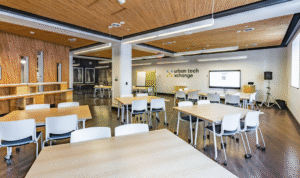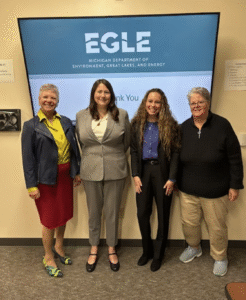
- Kim Kisner
- Business
- 04/18/2023
The GreenLight Fund - Shifting Investment Decisions to the People Involved
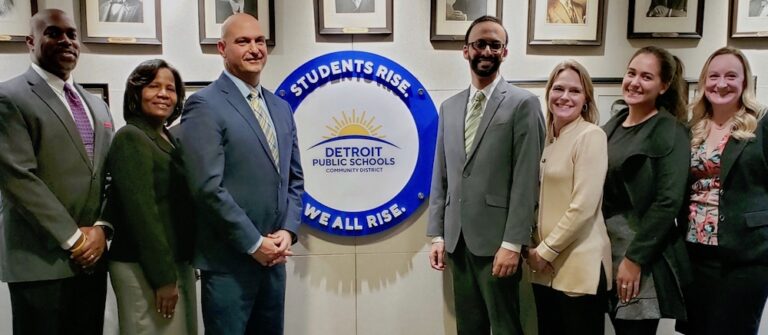
Rishi Moudgil leads the GreenLight Fund of Detroit, a locally driven, cross-sector, community-centered model to collectively identify critical paths to prosperity and invest in equitable social impact programs for children and families facing economic barriers in Detroit.
SBN Detroit spoke to Moudgil about the model, sustainability, and impact on Detroit residents, businesses, and stakeholders.
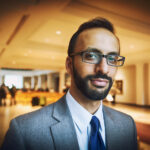
Q: Tell us about GreenLight Fund – what is the impetus behind it?
A: We are focused on tackling poverty and its effects on residents by investing in solutions that complement the local landscape and boost the existing ecosystem with a proven model that has had a track record in other urban areas.
We believe that for a social impact model to succeed and scale it must be aligned directly with who it serves and therefore local folks must drive the process of both determining their needs and selecting the ventures we invest in.
It comes back to the challenge of pushing into a community versus being pulled. Our unique model is pull-through.
We organize the stakeholders and local advocates to ensure that only programs that align with their needs and have high quality are brought in.
Q: What are examples of programs you’ve invested in and the outcomes?
A: A workforce program example is the Center for Employment Opportunities. We launched this in Detroit, and it offers immediate and comprehensive employment options for those who have been incarcerated.
It’s a multistage model that helps folks to gain immediate employment and put them on a path for long-term work. This dramatically reduces the human cost and financial costs of returning to the justice system. They also partner with existing organizations to shift policy measures that benefit thousands of residents to stabilize their lives and gain employment.
Another workforce program is the New Teacher Center, which provides new instructors with embedded support to enhance teaching practice and retention. This builds sustainability within their jobs and student learning gains in the classroom. The program has trained over 150 veteran teachers who mentor new teachers with evidence-based support and it’s reducing the turnover rate in the Detroit Public Schools community district.

These programs each came by a community-led process where local residents helped determine the gaps in their communities. We also then hire Detroiters to run the new programs.
Q: Relating it to sustainability and businesses in Southeast Michigan – what role does economic sustainability play in your investment strategy in Detroit?
A: The key foundation for people to prosper is a combination of economic stability and to have opportunities to advance. Workforce opportunities are critical, and in a place that has been plagued by disinvestment for so long, workforce and economic programs are not enough. We need to wrap around human services transit, housing, education, and more. There are so many topics related to creating an economic foundation for individuals and businesses.
Q: What role does environmental sustainability play?
A: We can’t have stable places to live, work and play unless the environment is stable. And low-income neighborhoods are some of the most environmentally unsound areas, so this exacerbates a host of problems that continues the cycle of poverty. But where development occurs, home ownership will follow, and thus begins the process of building a more sustainable community.
Q: Your website says, ‘Our deep connection with the community and strategic partnerships help organizations ramp up and start producing direct, meaningful change. This ongoing support enables organizations to thrive over time.’ How does this work?
A: What we are doing is shifting an approach of social investing to both trusting residents directly and developing stronger outcomes. We rely on residents to choose their destinies. We raise unrestricted capital from partners around the city and hand the funding decisions back to local stakeholders. Deep and ongoing trust is the key ingredient toward achieving the best outcomes.
After we launch, we hold a seat on their board, shepherd additional partners and resources, and help create a path of success.
Q: How do you account for ROI in your investments?
A: We are completely focused on social ROI, as are all of our social investment recipients. We co-develop social impact metrics with both our communities and organizations before we begin operations so there is a clear set of performance outcomes we all agree on.
Each organization has a set of outcomes that we all pull together toward achieving, and we know that if these goals are achieved then we are achieving the goals desired by our stakeholders.
Q: What’s the largest hurdle you face?
A: The biggest challenge is the people and families that have been in some of our neighborhoods the longest have received a disproportionate brunt of the disinvestment. There is no silver bullet. Multiple efforts need to be tackled over the long term. We have to be honest about how we all got here and have difficult conversations about race and gender and inequality.

So, one of the largest hurdles is alignment. Are the solutions properly aligned to the true needs of the people and planet and are they sustainable to create lasting change over time.
Q: How do you see the city’s Sustainability Action Agenda aligning with the work you are doing?
A: We are completely aligned with the agenda and believe we need integrated action. This means centering people and the planet simultaneously. We can no longer isolate variables and expect progress. Sustainability and social impact goals must be front and center as we build toward the future.
Be sure to subscribe to our newsletter for regular updates on sustainable business practices in and around Detroit.
Kim Kisner
- All
- Business
- Community
- Education
- Events

Citizen Robotics is a Detroit-based nonprofit that advances the use of robotics and digital manufacturing in residential construction, focusing on improving productivity, sustainability, and long-term affordability. Best known for its early work in 3D-printed housing, it explores how alternative construction methods and new financial models can reduce material waste, lower lifetime operating costs, and enhance the resilience of homes. SBN Detroit interviewed Tom Woodman, founder and president of...

Detroit-based OneSix Energy is a clean-energy technology company focused on advancing a lower-carbon approach to hydrogen production. Headquartered at Newlab in Detroit, the startup is developing a proprietary methane pyrolysis system designed to produce hydrogen without carbon dioxide emissions, while also generating solid carbon as a co-product. SBN Detroit interviewed with cofounder Stefan Sysko about the company’s origins, its approach to hydrogen production, and why Detroit is positioned...
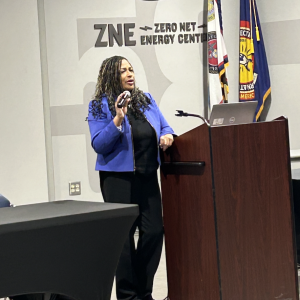
Regina Strong serves as Michigan’s first Environmental Justice Public Advocate, leading the state’s Office of the Environmental Justice Public Advocate. Her role focuses on addressing environmental justice concerns raised by communities, helping residents navigate environmental systems, and working across state agencies to improve equity in environmental decision-making. SBN Detroit interviewed Strong about the challenges communities are facing across Michigan and what environmental justice work looks like in practice....





